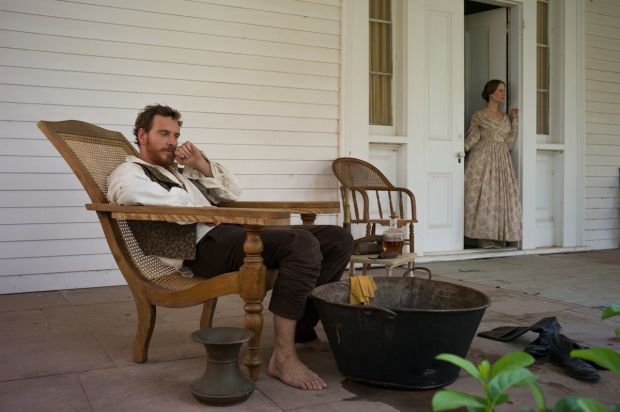
The highly anticipated film “12 Years a Slave,” which is expected to sweep a number of Oscar categories, will screen Saturday at the Malibu Film Society. Afterward, producers Dede Gardner and Jeremy Kleiner will conduct a Q&A with the audience.
The film is based on the true story of Solomon Northup, an African-American carpenter and violinist from New York State who was kidnapped and sold into slavery from 1841 to 1853. After regaining his freedom with the help of the New York government, he was able to rejoin his wife and children.
Northup wrote his memoirs as a slave with the help of a local white writer his first year back in New York, which sold 30,000 copies and was then forgotten. Northrup’s collaboration with a white co-writer made historians suspicious whether the words and story were really his. More than a century later, scholars rediscovered the book and validated the authenticity of his detailed accounts and descriptions.
The film stars award-winning British-Nigerian actor Chiwetel Ejiofo along with an all-star cast that includes Michael Fassbinder, Benedict Cumberbatch, Brad Pitt and Paul Giamatti. Filming took place in 2012 on several antebellum plantations near New Orleans, just a few miles from the plantation where Northup was actually held.
Made with a modest $20 million budget despite the glittering lineup, the film’s journey from script to screen was highly unusual.
Director Steve McQueen approached writer John Ridley several years ago about working together on a film about slavery, but they didn’t yet have an idea for the story. It was McQueen’s wife, Bianca Stigter, who then discovered the “Twelve Years a Slave” book.
“I read this book, and I was totally stunned,” Ridley told National Public Radio. “At the same time I was pretty upset with myself that I didn’t know this book—a first-hand account of slavery. I basically made it my passion to make this book into a film.”
Adapting the 1853 book into a screenplay took three years, Ridley said in a telephone interview with The Malibu Times.
“Some time was spent in researching the era in general, the history of the U.S., America at that time and place,” Ridley said. “It was a different era and the language was very different. It also took time to hone the narrative, shape the story—you’re taking 12 years (of a man’s life) and fashioning it into a two hour and 15 minute [film].”
When asked how the producers were able to sell a movie about slavery to the studios, Ridley said the story held universal truths.
“It was not selling a story of slavery, it was selling a story of hope, of faith, of true human values—about a human using every aspect of himself to survive,” he said. “It’s a very powerful, emotional story that cuts across all demographics. Everyone can put themselves into it.”
Ridley strived to stay true to the original 1853 book as much as possible.
“I didn’t want to have an overlay of a modern mindset. I was not trying to be a corrective for that era,” he said. The only artistic license he took in the storytelling was to “create some bridges from scene to scene.”
Malibu resident Ed Larson will be conducting the Q&A with two of the movie’s producers on Saturday, Dec. 7 at 7:30 p.m. Larson, who won the 1998 Pulitzer Prize for History, is a history professor and holds the Hugh & Hazel Darling Chair in Law at Pepperdine University. He’s written extensively about slave owners such as Thomas Jefferson, as well as the impact of the Fugitive Slave Law and the Dred Scott decision.
“It’s always interested me to see how people become enlightened to a new view of what is humane,” Larson explained in a telephone interview. “There was little opposition to slavery at first, and then opposition started growing about 1750. There was a build-up [from slave owners] in terms of justifications, and of course it built all the way to a massive Civil War that tore America apart.”
Admission to this screening is free for all members of MFS, AMPAS, HFPA, film industry guilds, MJCS, St. Aidan’s Church and their guests.
RSVP required via email: scott@MalibuFilmSociety.org noting your name, membership/industry affiliation, and number of seats requested. Malibu Screening Room, 24855 Pacific Coast Highway (in the Malibu Jewish Center one mile up the coast from Pepperdine).



